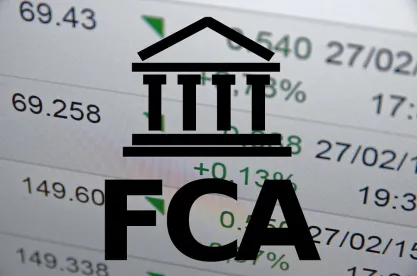The False Claims Act (“FCA”) seeks to protect government funds supporting public services by imposing treble damages and penalties on entities that falsely claim money from the United States or fail to pay money owed to the federal government. To be liable under the Act, the defendant must have acted “knowingly.” FCA claims can arise across industries, including healthcare, infrastructure, veteran support, job programs, disaster relief, and other essential social services. Oftentimes, these claims involve government contractors who knowingly fail to provide the services for which they have received government funding. For example, in June 2022, the government filed claims against American Health Foundation and three affiliated nursing homes for extreme failures to meet required standards of care. The Department of Justice alleges abuse and neglect at the nursing homes, specifically that the defendants failed to maintain adequate staffing and failed to implement appropriate infection control protocols. Earlier this year, the district court denied the defendants’ motion to dismiss, holding that they had falsely claimed to have met a prerequisite standard of care for reimbursement under Medicare and Medicaid, and that their misrepresentations were material to the government’s making the reimbursements. United States v. American Health Foundation Inc., No. 22-02344, 2023 WL 2743563 (E.D. Pa. Mar. 31, 2023)
Whistleblowers are Central to Enforcement of the False Claims Act
Although the case against American Health Foundation was brought on the government’s own initiative, whistleblowers are a critical piece of the FCA program’s success. In 1986, Congress substantially strengthened the FCA by incentivizing whistleblowers to file lawsuits alleging that false claims have been made demanding payment from the government. 31 U.S.C. §§ 3729 et seq. These actions, called qui tam suits, can result in significant awards for the whistleblower, also known as a “relator.” The government may choose to participate, or “intervene,” in a qui tam suit based on its enforcement priorities for a given year. 31 U.S.C. §§ 3730. When the government does intervene and the relator’s qui tam results in a successful outcome, the relator can receive 15-25% of the recovery. 31 U.S.C. § 3730(d). When the government does not intervene, the relator can recover 25-30% of the total recovery. Since Congress strengthened the False Claims Act in 1986, recoveries to the government and whistleblowers have exceeded $72 billion.
FCA Whistleblowers’ Success in Recent Years
In fiscal year 2020, the government recovered a total of $1.7 billion in qui tam settlements and judgments out of a total of $2.2 billion in qui tam and non-qui tam suits, and relators received awards of $328 million. In fiscal year 2021, the government recovered a total of $1.7 billion in qui tam settlements and judgments (out of a total of $5.7 billion in all FCA recoveries), and relators received awards of $263 million.
FCA whistleblowers did particularly well in fiscal year 2022, with 351 settlements and judgments topping $1.96 billion out of a total recovery in FCA litigation of over $2.2 billion. In other words, 86% of the total recovery derived from suits brought by whistleblowers on behalf of the government. The government paid out over $488 million to these relators, a significant increase from 2021’s $263 million, and the highest total relator payment since 2017. Notably, the relator awards in cases where the government declined to intervene were the largest in history, topping $347 million, while the awards in cases in which the government intervened amounted to $141 million. According to Principal Deputy Assistant Attorney General Boynton, “The large number of settlements and judgments this past year demonstrates that the False Claims Act remains one of the most important tools for ensuring that public funds are spent properly and advance the public interest.”
Many of these cases in recent years arose in the health services industry, such as the case filed against the nursing homes in the American Health Foundation case. Cases involved home health and managed care providers, hospitals, drug manufacturers, pharmacies, hospice facilities, and individual health care providers. In 2022, the Department of Justice recovered $1.7 billion in settlements and judgments related to this industry, representing federal dollars lost to fraud, but this number does not account for additional recovery for state Medicaid programs which the Department helped secure.
This year’s recoveries also highlighted where the Department is prioritizing enforcement. Specifically, multiple cases involved fraud in pandemic relief programs and government contractors and grantees who violated cybersecurity requirements.
The FCA’s success in winning substantial recovery for both the government and relators continues to encourage qui tam suits. In 2022, the government and qui tam relators filed 948 cases between them, a record high for the program. Of those 948, relators brought 652 qui tam actions and the Department of Justice initiated the remaining 296. While the number of relator suits is comparable to the number filed in many recent years, the almost 300 Department-initiated suits is the highest number since 1994.
The High Court Buoys FCA Plaintiffs
The Supreme Court’s recent 9-0 ruling in two consolidated FCA cases from the Seventh Circuit, U.S. ex rel. Schutte v. Supervalu, Inc. and U.S. ex rel. Proctor v. Safeway, Inc. represented an enforcement-friendly interpretation of the FCA’s knowledge requirement.
Under the FCA, a defendant is liable for submitting a false claim to the government for payment if it acts “knowingly.” The statute defines “knowingly” as meaning that the person had actual knowledge about the falsity of the information, deliberate ignorance about the truth or falsity of its statements, or reckless disregard of the truth or falsity of the information. 31 U.S.C. § 3729(b)(1)(A)(i)-(iii). But this knowledge standard had become a thorny issue for courts deciding cases where the truth or falsity of a defendant’s claim for payment turned on an ambiguous legal obligation. In several such instances, courts allowed defendants to skirt FCA liability when they acted consistently with an objectively reasonable interpretation of the legal obligation at issue, even if they subjectively believed that they were violating the law. Under these rulings, federal contractors could have the subjective intent to defraud the government at the time they submitted a claim, but so long as they (or their lawyers) developed an objectively reasonable legal theory justifying the behavior in response to a legal claim under the FCA, they could escape liability because they had not had the requisite knowledge of illegality.
In both Schutte and Proctor, the Seventh Circuit adopted this “objectively reasonable” standard. United States ex rel. Proctor v. Safeway, Inc., 30 F. 4th 649, 652 (7th Cir. 2022); United States v. SuperValu Inc., 9 F. 4th 455, 468 (7th Cir. 2021). The two cases concerned pharmacies that sought government reimbursement under Medicare and Medicaid for medications they dispensed. Pharmacies are permitted to seek reimbursement based on the “usual and customary” prices of the medications. These pharmacies bought the medications at discounted prices, but they requested reimbursement for what the drugs would have cost without the discounts. The plaintiffs alleged that these pharmacies knew they were submitting false claims, but defendants argued that because the legal duty to report discounts was unsettled, they advanced an objectively reasonable interpretation of the law when they made their requests based on inflated retail rates. The Seventh Circuit reasoned that FCA scienter requires proof that the “plain language” of the law at issue is incompatible with defendants’ reading, and their subjective belief at the time of the submission of the claim is irrelevant to that inquiry. SuperValu Inc., 9 F. 4th at 468. In its petition to the Supreme Court, the petitioners asked the Court to hold that the pharmacies’ subjective understanding that their claims were excessive is indeed relevant to the “knowingly” inquiry.
On June 1, 2023, in United States ex rel. Schutte v. SuperValu Inc., the Supreme Court overturned the Seventh Circuit’s judgment in these related cases, holding that FCA liability hinges on a defendant’s knowledge and subjective beliefs, attaching liability to employers who knew or suspected a claim for government payment was false, even if an objectively reasonable person could have believed otherwise. 143 S. Ct. 1391 (2023). Particularly important to the Court was closing the loophole that enabled employers to capitalize on convenient post-hoc rationalizations for behavior they knew was wrong at the time they submitted their claim for reimbursement. “The focus is on what a defendant thought when submitting a claim—not what a defendant may have thought after submitting it.” Id. at 1393. Following the Court’s June decision, the Seventh Circuit remanded both cases to the respective district courts for further proceedings. United States ex rel. Schutte v. SuperValu Inc., No. 20-2241, 2023 WL 4819720, at *1 (7th Cir. July 27, 2023); United States ex rel. Proctor v. Safeway, Inc., No. 20-3425, 2023 WL 4824704, at *1 (7th Cir. July 27, 2023).
The Future of the FCA
Schutte was the first FCA case to come before the Supreme Court since several of its newest justices arrived, so the unanimous holding provides some insight into how the Court will address the statute in the future. Instead of upholding the Seventh Circuit’s interpretation or denying the petition for review, the Court took the opportunity to confirm that a plaintiff may hold defendants accountable under the FCA if the plaintiff can prove the defendant believed they were in the wrong. The boundaries and interpretations of the FCA are constantly evolving, and each ruling seems to generate more questions even as it answers others. But in this ruling, the Court came down in favor of FCA enforcement—and FCA whistleblowers—and of fidelity to the statutory text. The Department’s suit against American Health Foundation may ultimately benefit from the Court’s newly clarified explanation of the knowledge requirement, depriving the nursing homes of the defense that standards of care were not clearly spelled out when they submitted their reimbursement claims.
Additionally, 2022’s strong record of settlements and judgments suggests the program’s continued and growing success. The record number of DOJ-initiated suits indicates that the Department is becoming less reliant on relators to prompt investigations and is instead strengthening the investigatory branch of the FCA program.
Deciding to act as a whistleblower is a difficult decision no matter the context. But for now, at least, FCA whistleblowers have good reason to believe that their efforts may lead to a just outcome and the possibility of a significant reward.




 />i
/>i

